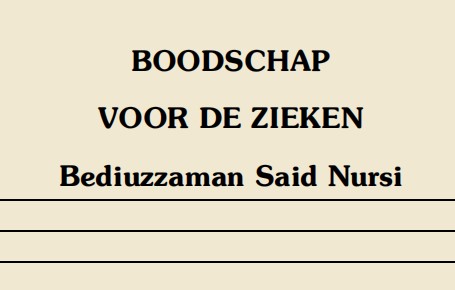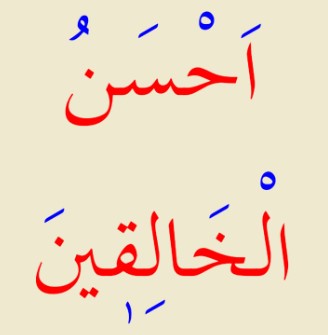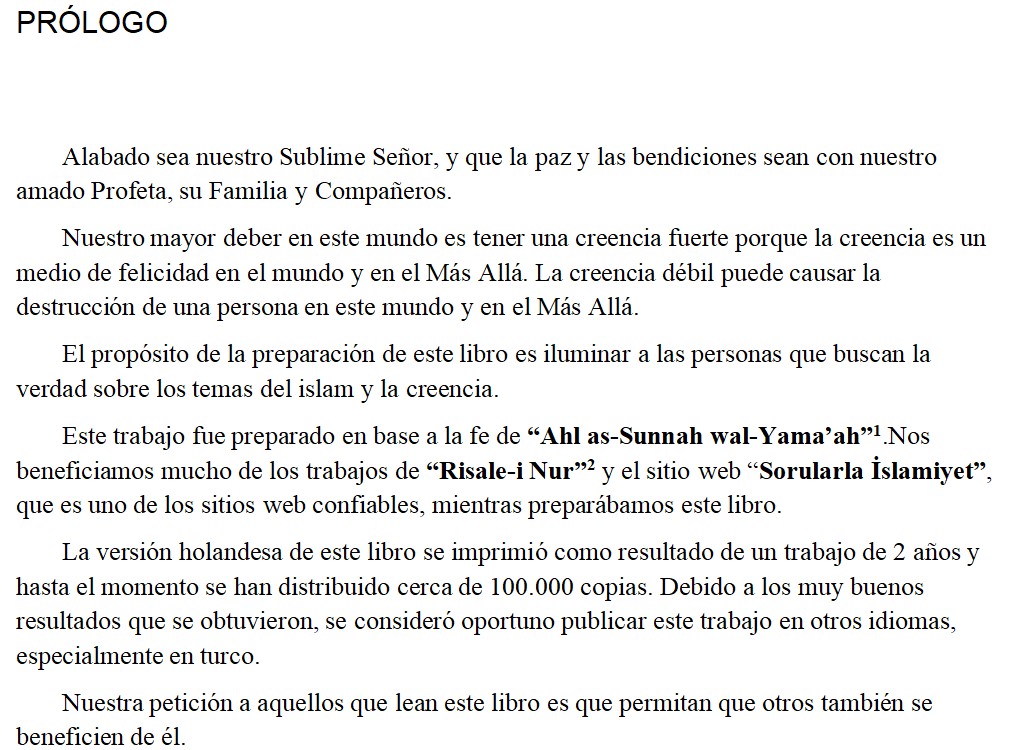
Are There Other Creators?
"Phrases in the Qur'an like
.png)
'The Best of Creators'(23:14, etc.), and 'The Most Compassionate of the Compassionate'(7:151, etc.), suggest that there are other creators and compassionate ones ?
The Answer: We shall answer this question with five indications.
FIRST INDICATION: From beginning to end, the Qur'an demonstrates divine unity; this is a clear indication that those sort of phrases in the Qur'an are not as you understand them. Rather, .png) "The Best of Creators" is to say, "He is at the highest and best rank of creativity," which in no way indicates that there is another creator. Like the other attributes, creativity has many degrees or ranks.
"The Best of Creators" is to say, "He is at the highest and best rank of creativity," which in no way indicates that there is another creator. Like the other attributes, creativity has many degrees or ranks. .png) "The Best of Creators" means, "He is a Glorious Creator at the furthest and most excellent degree of creativity."
"The Best of Creators" means, "He is a Glorious Creator at the furthest and most excellent degree of creativity."
SECOND INDICATION: Terms like, .png) "The Best of Creators" do not look to a plurality of creators, but to the varieties of the state of being creature. That is, "He is a Creator Who creates everything in an appropriate form, at a faultless degree." Verses like,
"The Best of Creators" do not look to a plurality of creators, but to the varieties of the state of being creature. That is, "He is a Creator Who creates everything in an appropriate form, at a faultless degree." Verses like,
.png)
"Who makes most excellent everything He creates" (32:7), express this meaning.
THIRD INDICATION: The comparison suggested by terms like,
.png)
"The Best of Creators," "Allah is Most Great,"[*] "The Best Judge between truth and falsehood" (6:57), and "The Most Bountiful" are not comparative and superlative adjectives comparing Allah Almighty's actual attributes and actions with others who possess samples of those attributes and actions. For all the perfections in the universe, and in jinn, men, and angels, are but pale shadows in relation to His perfection. How could any comparison be possible? It is rather human beings, and particularly the people of neglect, who see perfection in terms of comparison.
For example, a private shows complete obedience and respect to his corporal. It seems to him that all benefits come from him and he thinks little of the king. Even if he does think of him, it is still to the corporal that he shows his gratitude. So it is said to the private: "See here! The king is much greater than your corporal, it is only him that you should thank." Now this sentence does not compare the king's imperial commandership, which is actual, with the corporal's command, which is partial and only apparent; because to do so would be meaningless. The private prefers the corporal and loves and thanks only him as a result of what he considers important and how he sees his relations with the corporal.
Similarly, when apparent causes are imagined to be the creator and bestower of bounties in the view of the people of neglect, they become a veil to the True Bestower of Bounties. Such neglectful people cling onto causes and suppose that bounties and favours are from them; they praise and acclaim them. The Qur'an says: "Allah Almighty is a greater, more excellent Creator, a far better Bestower of Bounties. So look to Him, and thank Him."
FOURTH INDICATION: Just as there may be comparison between actual beings and preference for some over others, so there may be comparisons between possible or even hypothetical things and preference. Numerous degrees or levels are present in the true natures of most things. So too, in the view of the intellect, innumerable degrees may be present in the true natures of the divine names and sacred attributes. Whereas Allah Almighty is at the most perfect and excellent of all the possible and imagined degrees of those attributes and names. The whole universe witnesses to this truth through all its perfections. "His are the Most Beautiful Names" (17:110, etc.), "describing all His names as the most excellent," expresses this meaning.
FIFTH INDICATION: This use of the comparative and superlative is not to be understood in terms of creatures, but in terms of the fact that Allah Almighty has two sorts of manifestations and attributes.
The First Sort: In accordance with the mystery of His unity, this consists of His disposal over creatures under the veil of causes and intermediaries and in the form of universal laws.
The Second Sort: In accordance with the mystery of His oneness, it is His disposal over creatures directly, without veil, regarding each in a particular way. This means that through the mystery of oneness, His bestowal, creation, and grandeur which are direct, are greater and more elevated and excellent than the works of His bestowal, creation, and grandeur which are apparent through the manifestations of causes and intermediaries.
For example, let us suppose there is a king, but he is a saint-king. He has great numbers of officials and commanders but they are only veils, for the authority and execution of all matters are directly in his hand. The king's power of disposal and execution of affairs are of two kinds:
The First Kind: The execution of affairs he demonstrates and the commands he gives through a universal law in the form of visible officials and commanders in accordance with their abilities and ranks.
The Second Kind: This is not through universal laws. He does not make visible officials a veil; his execution of affairs and royal favours are direct and may be described as more elevated and excellent.
In the same way, the Creator of the universe, the Monarch of Pre-Eternity and Post-Eternity, has made numerous causes and intermediaries veils to His execution of affairs and has demonstrated the majesty of His dominicality. But He left private telephones in His servants' hearts so that they might leave causes behind and turn directly to Him, and might declare:
.png)
"You alone do we worship and You alone do we ask for help!" (1:5)
Thus, the meanings of .png) "The Best of Creators," "Most Compassionate of the Compassionate," and, "Allah is Most Great" [*] look to this meaning, too.
"The Best of Creators," "Most Compassionate of the Compassionate," and, "Allah is Most Great" [*] look to this meaning, too.
The Words - 663
Nur Way
{[*]: Abû Hanîfa, al-Musnad, 148; Abû Yûsuf, Kitâb al-Âthâr, 18; al-Shâfî'î, al-Sunan al-Ma'thûra, 290; Ibn Abî Shayba, al-Musannaf, vi, 75; al-Tabarânî, Mu'jam al-Awsat, v, 28.}





